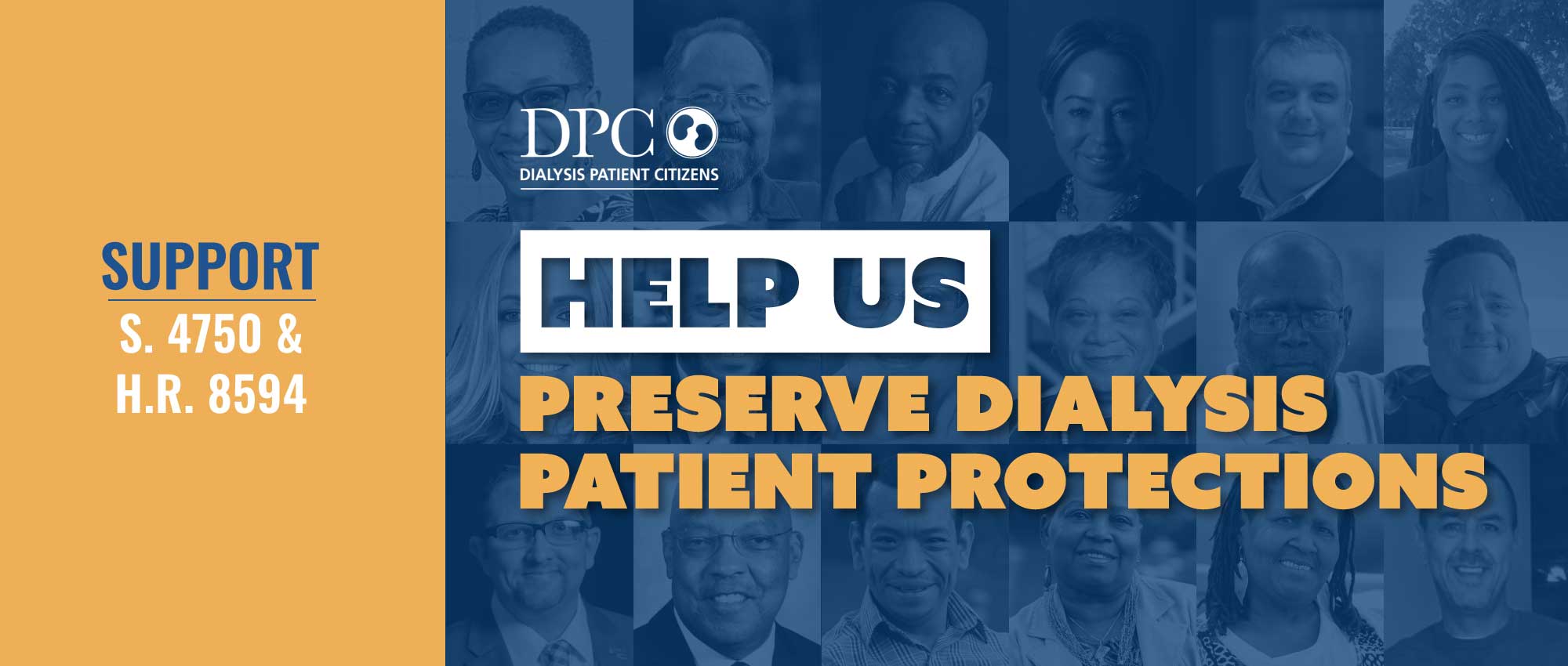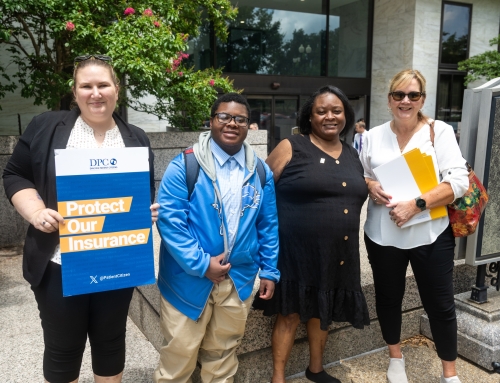
By Megan Hashbarger, DPC Vice President of Government Relations and

Jackson Williams, DPC Vice President of Public Policy
A U.S. Supreme Court ruling has nullified the law that protects dialysis patients from discrimination by insurers, threatening the system of financing kidney care that has stood for 40 years.
The Court ruled that employer health plans may limit dialysis benefits. For four decades, employers understood the law as prohibiting limitations that only applied to dialysis. Some health benefit consultants encouraged a few small employers to disregard the law by paying no more than Medicare rates for dialysis. DaVita sued them, and one of the cases was appealed to the Supreme Court.
The decision means that employers and insurers can impose low rates for dialysis or use other benefit limitations to encourage ESRD patients to drop coverage and switch to Medicare. For affected patients, losing employer coverage can mean reduced access to physicians, loss of dental benefits, lost dependent coverage, or higher cost-sharing.
“DPC is deeply disappointed by today’s Supreme Court decision,” said DPC Board President Andrew Conkling. “Congress long ago reaffirmed privately-insured patients’ right to continue on their employer-sponsored plan for 30 months. This has played an important role in preserving patient choice and incenting plans to detect and treat Chronic Kidney Disease. To allow these plans to shift patients to Medicare before the expiration of this period represents immediate and profound risks for kidney patients and their families across the nation. As the dissenting justices stated, Congress will have to fix a statute that the Court has broken. We and other ESRD patient advocates will go back to Congress immediately to clarify the rules once and for all.”
Less reimbursement from commercial insurance means less money in the dialysis care system. This comes at a time when many health care providers are struggling to hire staff and must pay more to attract and retain workers. For many clinics, Medicare rates alone aren’t enough to break even. At best, that means fewer options for dialysis patients. At worst, communities that already have limited options and funding could have a harder time accessing treatment close to home.
The ESRD provisions of the Medicare Secondary Payer statute are intended to save Medicare money while incentivizing good preventive care. The decision is likely to impose significant costs on the federal government. Restoring kidney patients’ rights will save the government money.
The decision also weakens insurers’ incentives to detect and treat Chronic Kidney Disease (CKD) early, to extend patients’ kidney function; or to prepare CKD patients for a stable transition to ESRD. Employers may be less likely to pay for kidney-preserving Rx drugs—which are already underused—and more likely to pass ESRD patients on to Medicare who didn’t receive appropriate transitional care.
In order to address this concern, a group of bipartisan, bicameral Members of Congress have come together and introduced The Restore Protections for Dialysis Patients Act (H.R. 8594/S. 4750) which would codify into law the right for dialysis patients to stay on their private insurance for 30 months. This legislation is extremely important for patients and also saves the federal government money by delaying patients going immediately into Medicare.
We encourage all our members to reach out to their Member of Congress and encourage them to cosponsor The Restore Protections for Dialysis Patients Act (H.R. 8594/S. 4750). For more information, please visit our website at http://www.dialysispatients.org/MSP.




